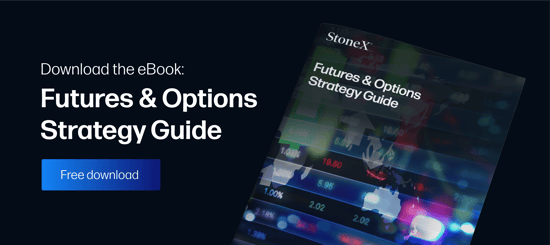In comparison to other securities, futures exhibit many characteristics that offer traders unique opportunities. Whether you’re an intraday, day, or swing trader, these markets are attractive venues for the pursuit of nearly any financial goal. Unless you’re a traditional “buy-and-hold” investor, there are several key advantages of trading futures that make them especially alluring. The five primary advantages are:
- Flexibility
- Diversity
- Beneficial market conditions
- Cost effective
- Low barriers to entry
In the financial arena, spotting opportunity is the name of the game. Futures facilitate a wealth of trade-related functions, from capital preservation to active speculation.
Flexibility and Diversity
The futures markets furnish traders with the ability to engage a wide variety of asset classes using almost any methodology. The flexibility of strategy application and the diversity of product offerings are two of the most prominent advantages of trading futures.
The flexibility of trading options is especially attractive to active traders. A trader isn’t limited to securing profits from long positions alone — profiting from bear markets is equally viable. Being able to secure market share from both long and short positions is a major bonus that’s not readily available in the conventional stock or bond markets. In addition to the freedom to buy or sell, the availability of enhanced leverage gives less capitalized traders a chance to increase their market exposure.
Another of the many advantages of trading futures is the diversity of product offerings. Standardized contracts are available facing a broad spectrum of asset classes. Ag commodities, energies, metals, equities indices, and interest rate markets are all accessible. No matter your preferred asset, an associated futures contract stands ready for trade.
Beneficial Market Conditions
Posting sustainable gains in subpar market conditions can present a monumental challenge to active traders. Extended periods of slow price action, low traded volumes, or market turbulence often prove detrimental to the bottom line. Fortunately, futures markets regularly supply two components critical to successful active trade:
- Liquidity: A robust depth-of-market ensures that orders are filled efficiently, minimizing slippage and aiding in market entry/exit.
- Volatility: Consistent fluctuations in contract pricing provide regular trading opportunities and the ability to realize profit from discrepancies.
Simply put, an ideal target for active trading consistently exhibits volatility and a high degree of liquidity. When paired together, these two characteristics are fantastic advantages of trading futures.
Cost Effective
Running a successful business boils down to taking in more money than is going out. Profitability equals total revenue minus the cost of sustaining operations. For active traders, expenses are broken down into two categories: capital loss and sunk costs.
In the trade of futures, capital losses are certain to occur and must be dealt with proactively via the principles of money management. However, sunk costs are relatively mild in comparison to other forms of capital investment. The three costs that futures traders must account for are:
- Data fees
- Exchange/clearing fees
- Brokerage commissions
The beauty of the futures cost structure is that aside from monthly fees to stream exchange-based data, the other duties are paid on a per-trade basis. Exchange, clearing, and brokerage fees are automatically calculated and assigned. In most cases, they represent only a minute portion of the final position size. This is very different from ETF or standard mutual fund costs, which add on significant management and transaction fees.
Low Barriers to Entry
Perhaps the biggest upside of the futures markets is their low barriers to entry. Really, all a trader needs to participate is some risk capital, internet connectivity, and the services of a reputable brokerage firm.
The evolution of information systems and internet technologies has brought the capital markets online to the masses. No longer does a trader need to be a high-net-worth investor or exchange seat owner to participate. With a few thousand dollars, computing power, internet connectivity, and a desire to succeed, anyone can join the ranks of active futures traders.
Capitalizing on the Advantages of Trading Futures
While becoming involved in the futures markets is straightforward, you need to take some care before committing your time and capital.
Securing the services of a competent, experienced, and knowledgeable broker is a great first step on your road to becoming a profitable futures trader. For more information on how futures can work for you, contact the team at StoneX to schedule a free consultation.


